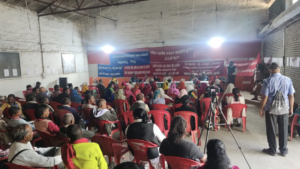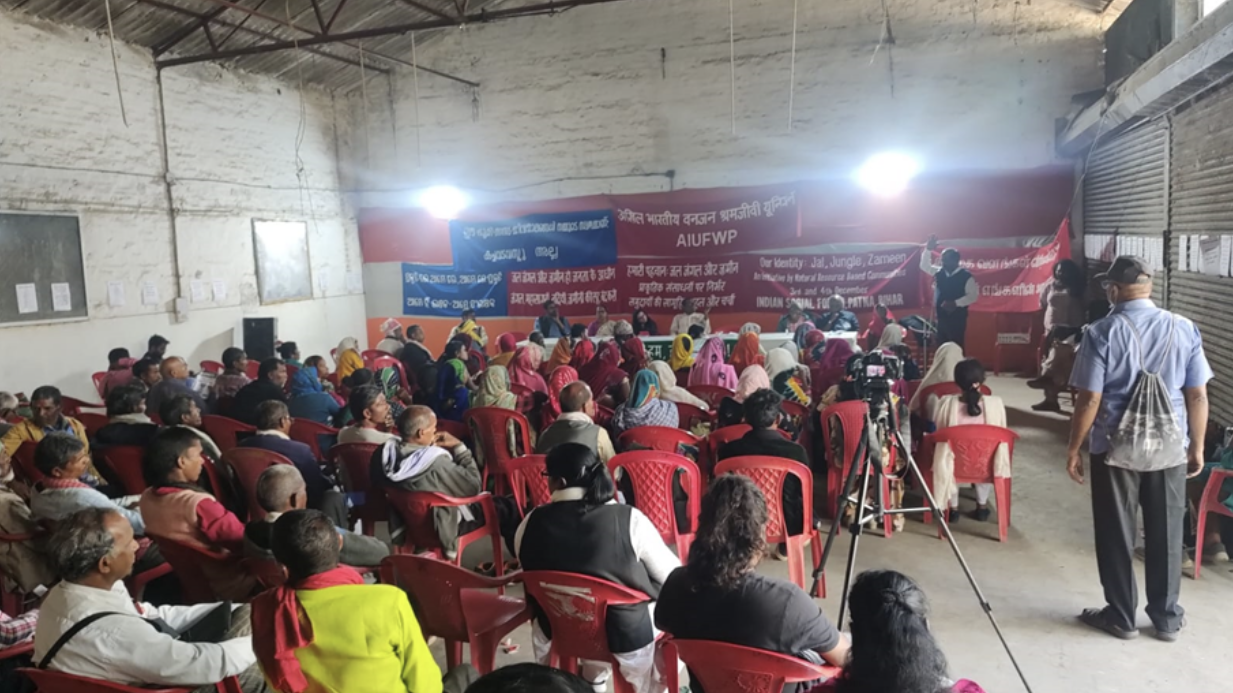 The India Social Forum was held in Patna from 2nd December to 4th December, was a confluence of social movements and civil society organizations from across India. The Financial Accountability Network and the Centre for financial Accountability participated in the event and shared pressing concerns regarding accountability of public finance.
The India Social Forum was held in Patna from 2nd December to 4th December, was a confluence of social movements and civil society organizations from across India. The Financial Accountability Network and the Centre for financial Accountability participated in the event and shared pressing concerns regarding accountability of public finance.
Addressing the issues of banking, investments, credits and corporate-government nexus, Thomas Franco (former AIBOC general secretary, part of Jan Sarokar & Joint Convenor People First) Om Prakash Singh (from the Centre of Financial Accountability, Anirban Bhattacharya (from Financial Accountability Network), Amitanshu Verma (from the Centre for Financial Accountability) and Nancy Pathak (from Financial Accountability Network) participated in a session held at the Social Forum. Joining forces with the All India Union of Forest Workers the speakers through the course of the session brought to light pressing concerns related to the government’s financial policies, emphasizing their detrimental impact on marginalized communities, exacerbation of rising inequality, the need for a Wealth Tax, and the urgency of environmental and social safeguards in development finance.
The speakers ardently contended that existing policies disproportionately favor large corporations, evident in the declining trend of priority sector lending and the escalating volume of loans and write-offs benefiting major corporate entities. This skewed allocation of resources further widens economic disparities faced by vulnerable groups. The diminishing presence of bank branches in rural and Adivasi areas, coupled with the looming threat to employment reservations due to privatization, raised urgent alarms.
A resounding plea echoed for an immediate and extensive expansion of banking infrastructure in rural and forested regions. This call was accompanied by a demand for increased credit allocation aligned with social priorities, with a specific focus on empowering natural resource-based communities, Dalits, and minorities. The speakers underscored the pressing need for heightened environmental consciousness, especially concerning infrastructure projects in ecologically sensitive areas such as the Himalayas, forests, and coasts.
The speakers highlighted that petrochemical industries, supported by public funds, are causing severe pollution, directly threatening the livelihoods of communities dependent on these delicate ecosystems. The collective demand was unequivocal – a reversal of policies that disproportionately benefit a select few corporates at the expense of the broader populace. Additionally, the speakers emphasized the imperative of increased transparency in the allocation of loans and resources to ensure that public funds are directed toward projects genuinely contributing to the welfare of the people and the preservation of the environment. This collaborative effort among diverse voices seeks to draw attention to these critical issues and drive positive changes in financial and environmental policies for the benefit of all.
𝗖𝗲𝗻𝘁𝗿𝗲 𝗳𝗼𝗿 𝗙𝗶𝗻𝗮𝗻𝗰𝗶𝗮𝗹 𝗔𝗰𝗰𝗼𝘂𝗻𝘁𝗮𝗯𝗶𝗹𝗶𝘁𝘆 is now on 𝗧𝗲𝗹𝗲𝗴𝗿𝗮𝗺 and 𝗪𝗵𝗮𝘁𝘀𝗔𝗽𝗽. 𝘊𝘭𝘪𝘤𝘬 https://t.me/cfa_ind 𝘵𝘰 𝘫𝘰𝘪𝘯 𝘰𝘶𝘳 𝘛𝘦𝘭𝘦𝘨𝘳𝘢𝘮 𝘤𝘩𝘢𝘯𝘯𝘦𝘭 channel and our WhatsApp channel at https://bit.ly/cfa-whatsapp and 𝘴𝘵𝘢𝘺 𝘵𝘶𝘯𝘦𝘥 𝘵𝘰 𝘵𝘩𝘦 𝘭𝘢𝘵𝘦𝘴𝘵 𝘶𝘱𝘥𝘢𝘵𝘦𝘴 𝘢𝘯𝘥 𝘪𝘯𝘴𝘪𝘨𝘩𝘵𝘴 𝘰𝘯 𝘵𝘩𝘦 𝘦𝘤𝘰𝘯𝘰𝘮𝘺 𝘢𝘯𝘥 𝘧𝘪𝘯𝘢𝘯𝘤𝘦.

